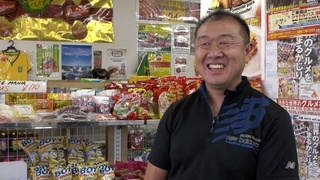Interviews
Japan's impact on the image of Nikkei in Brazil (Portuguese)
(Portuguese) The image that Nikkei have in Brazilian society is an extremely positive one. I think that in the imagination, in their head, when a Brazilian says the word Nikkei, they say or they remember something about people who worked hard, who worked in agriculture, well-behaved students, very quiet students, right? I think there’s a whole series of positive characteristics. I think that even today – it’s interesting that today in Brazil just about fifteen percent of Japanese descendents work in agriculture.
But nevertheless, Brazilian society has this image of a Japanese person, or of someone from a Japanese family, as a farmer’s child, or as a farmer. And then, I don’t think it’s a positive image of just the Nippo-Brazilian community, there’s also a positive image of Japan, right? And more recently, when people talk about Nikkei, they imagine, what comes into their mind is the question of Brazilian workers living in Japan. So, unfortunately, or fortunately, they have, you know, this idea about a person, a person of Japanese descent, that goes to Japan, works, and brings back money, brings back dollars to Brazil.
So I think there’s this combination, right, of a shared history within the country, then of a Japanese society that emerged from the ashes of the Second World War and became a first world country, and then today of those descendents who are going to Japan to work, who are sacrificing and bringing money back to their families or to try and get ahead in Brazil.
Date: October 7, 2005
Location: California, US
Interviewer: Ann Kaneko
Contributed by: Watase Media Arts Center, Japanese American National Museum.
Explore More Videos

Defining "Nikkei"
(1941-2018) Japanese Canadian photojournalist and activist

The difference between Nikkei community in Oizumi and Brazil (Japanese)
(b. 1979) Sansei Nikkei Brazilian who lives in Oizumi-machi in Gunma prefecture. He runs his own design studio.

From being a dekasegi to a long-term resident (Japanese)
(b. 1979) Sansei Nikkei Brazilian who lives in Oizumi-machi in Gunma prefecture. He runs his own design studio.

The term Nikkei (Japanese)
(b. 1979) Sansei Nikkei Brazilian who lives in Oizumi-machi in Gunma prefecture. He runs his own design studio.

Advantages of living in Japan (Portuguese)
(b. 1962) Japanese Brazilian owner of a Brazilian products store in Japan.

Future of the Japanese Brazilian community in Japan (Portuguese)
(b. 1962) Japanese Brazilian owner of a Brazilian products store in Japan.

Lehman shock’s impact on the Japanese Brazilian community in Japan (Portuguese)
(b. 1962) Japanese Brazilian owner of a Brazilian products store in Japan.

Transition from a factory worker to starting his own business (Portuguese)
(b. 1962) Japanese Brazilian owner of a Brazilian products store in Japan.

Japanese Brazilians living in Oizumi (Portuguese)
(b. 1962) Japanese Brazilian owner of a Brazilian products store in Japan.

Unique Identity from Having Multiple Backgrounds
(b. 1938) Philipines-born hikiagesha who later migrated to the United States.

Growing up Japanese in Hawaii
(b. 1952) Former banking executive, born in Hawaii



Parents identification as Peruvian Okinawan
Okinawan American whose parents are from Peru.

Okinawan cultural appreciation
Okinawan American whose parents are from Peru.
